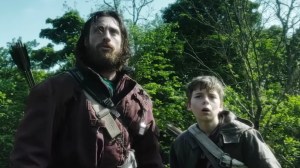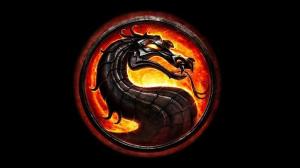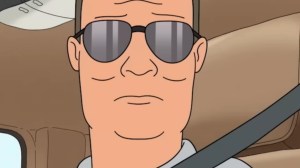Sometimes the circumstances surrounding a TV show’s debut can perfectly fall into place. That ended up being the case for TNT‘s Snowpiercer, which first hit the airwaves last May after years of development and behind-the-scenes changes. While the story of the titular train traversing a post-apocalyptic frozen tundra had been told multiple times before — first in the Jacques Lob and Jean-Marc Rochette graphic novel Le Transperceneige, and then in the 2013 film adaptation directed by Bong Joon-ho — its television adaptation made a profoundly unique impact, especially amid the backdrop of the COVID-19 pandemic. The series’ second season, which premieres later this month (and was filmed almost entirely prior to the industry-wide pandemic shutdowns), continues that level of unintentional poignancy, while also upping the ante in basically every regard. The first eight episodes of Snowpiercer Season Two showcase a series that has come into its own and is more stylish, more bizarre, and more timely than ever.
Videos by ComicBook.com
Season Two of Snowpiercer picks up right where the previous season’s cliffhanger left off, as the society of Snowpiercer has now been democratized following the revolution led by Andre Layton (Daveed Diggs), something that is only complicated by the surprise arrival of the presumed-dead Mr. Wilford (Sean Bean). Wilford, whose company constructed and owned Snowpiercer prior to the Freeze, and whose wicked views of society led to a lot of the train’s caste system, has been riding out the apocalypse with a small group on a supply train called “Big Alice.” With Big Alice and Snowpiercer now connected, the lives of the passengers onboard both trains are about to change forever — just as the circumstances of the apocalypse are about to change, too.
Snowpiercer‘s unconventional approach to Mr. Wilford in Season One — particularly, having him exist as a Wizard of Oz-style boogeyman who Melanie Cavill (Jennifer Connelly) could pretend to be to control the train — was one of its biggest strengths, which left a lot riding on the nature of his actual arrival. But as soon as Wilford and his Big Alice crew, including Alexandra Cavill (Rowan Blanchard), Melanie’s now-teenage daughter, officially enter Snowpiercer‘s fold, the series is able to narratively elevate itself in some really fascinating ways. Societal issues continue to be the beating heart of the series, but with a heightened approach, one that dissects what the way forward looks like when problems like classism, racism, and sexism have been laid bare. And even as some of the series’ characters do horrible things, there’s a sense of empathy that permeates throughout, acknowledging the survivor’s guilt and collective trauma of the trains’ passengers. Again, the majority of the season was filmed prior to the circumstances of the COVID-19 pandemic, but the sense of bonding over communal grief — and having no choice but to work together to build a better tomorrow — feels tailor-made to our current moment, as do other, more spoiler-heavy storylines of Season Two.
As the ideology of Snowpiercer grows stronger in Season Two, so does its approach to characterization. One of the biggest joys of Season Two is getting to see the larger ensemble interact, with combinations of characters and points of view that feel incredibly fleshed-out. Even if you thought you had a character figured out, Season Two manages to add more shades of grey to their individual stories, in a way that rarely ceases to be compelling. Even when Season Two retreads the steps made by Season One, it does so in a subversive way that feels earned for the players that are involved.
In terms of performances, there really isn’t a weak link in Snowpiercer Season Two, as each member of the cast is really able to grow into their respective roles. Bean’s Mr. Wilford is undeniably a standout of the season, delivering a flamboyant, morally-questionable, and very watchable performance that feels like a chaotic sibling to Ewan McGregor’s Black Mask in Birds of Prey. While Diggs’ role is slightly more understated than it was in Season One, he still gets some moments to shine, particularly as the straight man to the increasingly bizarre things that happen around him. It’s also worth noting Connelly and Blanchard, both of whom deliver captivating performances separately and together. As the season goes along, basically every other member of the ensemble cast gets a moment to shine, with Lena Hall’s Miss Audrey and Mike O’Malley’s Sam Roche particularly pulling on viewers’ heartstrings.
Snowpiercer might have started out a little rough around the edges, but it brilliantly and near-effortlessly comes into its own in Season Two. Even amid its grim setting, there’s a weird sense of comfort to watching the new series — both with the ways that it unintentionally captures our current moment, and with the ways that the series owns its weird and wonderful form of ensemble storytelling. If you haven’t been watching Snowpiercer, take this as a sign that you need to change that.
Rating: 5 out of 5









